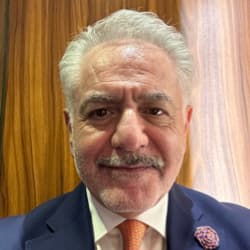I received my medical degree from Trinity College in Dublin Ireland in 1986. In addition to my extensive medical training in anaesthesia, neuroanaesthesia and critical care in Ireland, UK and the USA, I completed a Diploma in Business Administration from the University of Warwick in 2005.
I am the immediate past Divisional Director for Musculoskeletal, Digestive Diseases, Major Trauma and Perioperative Care Medicine at Cambridge University Hospitals, where I am also a Consultant in Anaesthesia and Critical Care. I am an Associate Professor at the University of Cambridge. I have held clinical and managerial experience at the local, national and international levels.
I have held leadership roles in a number of U.K. and international medical societies, and have an international reputation in the field of cerebral blood flow and metabolism, evidenced by >100 peer-reviewed publications and participation as an invited speaker in international scientific conferences. Over the past 20 years, I have been lucky and proud to have mentored many enthusiastic fellows in neuroanaesthesia and neurocritical care, many of whom have now become leaders and key opinion leaders in this field and are now advocates for brain health throughout the world from Australia to Canada.
For several years, I was the Healthcare Adviser to the Chairman of Dubai Healthcare City, HRH Princess Haya Bint Al Hussein. During this time we establish the Mohammed bin Rashid University of Health Sciences, completed Al Jalila Specialty Childrens’ Hospital, introduced many International Collaborations such as Alder Hey Children Hospital, Middle East Technology Summit, and the World Patient Safety movement for children.
In my efforts to continue developing non invasive monitoring, with particular emphasis on brain health, I took up the Senior Medical Director role for Masimo. I continue to highlight the importance of monitoring the brain not only in neuroanaesthesia and neurocritical care, but in all areas of anaesthesia and critical care where I believe the brain is at risk. My goal is to have the brain monitored in every patient undergoing anaesthesia or sedation in critical care, thus improving patient safety and outcomes.


